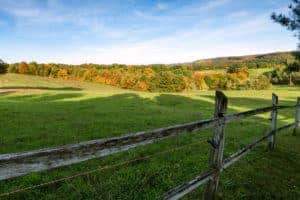Finding a real-estate lawyer in an unfamiliar community where you are looking to buy property can be scary.
Most of us seek a personal connection when searching for a new lawyer. We feel word-of-mouth references can be trusted. My experience is that the value of such references depends on the source. If the source is relatively unknown to the buyer, the value of the referral is anybody’s guess.
If you don’t have a trusted local contact whose experience can screen local lawyers, you might try talking to the clerk who handles deed recordation and more than one local lender. Be wary of a lender or real-estate broker who recommends only one lawyer—it might be the lawyer on the bank’s board or the lawyer with whom the broker has some personal tie. Steering of this type can be either a favor done to keep you away from the bad eggs or a self-interested ploy to direct your business away from equally good eggs for reasons that have nothing to do with competence.
Internet sites, the local Chamber of Commerce, Martindale-Hubbell and the state bar directory can turn up names. www.findlaw.com depends on lawyers registering on the site, so all lawyers are not included. Martindale includes only those lawyers who pay for this service. In small rural counties, local real-estate lawyers may see no reason to pay for a Martindale listing.
As cumbersome and as outdated as it is, I think the hard-copy yellow-pages phone book is the best first step to finding a local lawyer in a new community. (The online edition requires that you know the lawyer’s name to do a search. When I typed in lawyer for Monterey, Virginia, where two lawyers practice [one of whom is my wife], neither came up.)
The hard-copy yellow pages shows what local lawyers say about themselves, locally. Look for “real estate” as one of the lawyer’s principal practice areas. If it’s listed first, it’s the major practice area.
A buyer can go into the courthouse and check through the most recent deed book to see which lawyers are doing the most real-estate work. I would not rely on this search technique alone.
An out-of-county buyer can also ask his lawyer at home to provide a couple of contacts.
I prefer country lawyers who are sole practitioners or in a very small practice. The bigger firms charge higher rates and, generally, assign deed research to a paralegal. I also prefer working with women. My experience is that they are smarter and more flexible than male country lawyers generally speaking, but I’ve found exceptions that demonstrate the opposite. I look for someone with at least 10 years of real-estate experience in that county.
As a rule, I want a lawyer who practices in the county where I have targeted a property search. Out-of-county lawyers might have fancier offices and spiffier law degrees, but they’re not likely to know as much about local people and conditions as the local practitioner. The best deals I’ve negotiated as a buyer have involved high-priced out-of-county lawyers who knew nothing at all about what the sellers were selling. These guys weren’t dumb; they were just ignorant.
I advise against asking the seller to recommend a lawyer, except perhaps as a way to find out who the seller likes. Brokers and agents representing the seller might be asked to provide names of two or three local lawyers.
A buyer can place more confidence in a referral from a broker or agent representing the buyer, though I would check out that reference too. I think it’s probably true that a buyer is likely to get the best referral from an agent who works exclusively for buyers, but I have no way of testing that generalization.
A buyer should schedule an appointment with at least two of the lawyers turned up.
Next week, I’ll discuss what a buyer looks for when interviewing a real-estate lawyer.
This content may not be used or reproduced in any manner whatsoever, in part or in whole, without written permission of LANDTHINK. Use of this content without permission is a violation of federal copyright law. The articles, posts, comments, opinions and information provided by LANDTHINK are for informational and research purposes only and DOES NOT substitute or coincide with the advice of an attorney, accountant, real estate broker or any other licensed real estate professional. LANDTHINK strongly advises visitors and readers to seek their own professional guidance and advice related to buying, investing in or selling real estate.








your article on real estate purchase in a foreign nation falls short of the realities i am sorry to say
to refer to a Yellow Pages simply does not make sense when almsot 200 of some 260 approx nations have no such tool to work with
talking to a court clerk? how and in what language? Cyprus is a beautiful island and the court clerk would only speak a dialect Greek language that might puzzle mainland Greeks Portugal is lovely, would you be prepared to speak to their clerk of records?
Suggestions on how to manage foreign purchases abound yet none i have seen actually solved the problems that i faced in the past and with over 10,000 global purchases to my life experience i would advise to , in your mother tongue, seriously research the national laws pertaining to real estate in the nation you wish to purchase land or buildings, and find your own way in the local marketplace seeking exactly what you are after. If you find it, go for it, attempt to bring the seller to terms that work for both of you, and with the aid of a paid translator at your side, put those terms and conditions down on paper in the prevailing language and take them off to the first legal step of authentifcation and approvals. if you have done your homework well, its unlikely that any real legal barriers will stand in your way yet be prepared for illegal barriers to be placed before you so you can solve them with bribes and gifts.
it is the last step above that is the easy step as long as you know the local law perfectly
there is no shortcut to finding property anywhere, and what is not for sale, may be for sale, one cannot work as one would work in the states thinking that properties are listed etc. there is no such method of transacting properties in most of the world. you have to search house by house if necessary to find the property that you seek and you have to prospect as a salesman prospects for his clients from cold leads and a lot of shoe leather invested…Government employees, hotel clerks, taxi drivers, lawyers, bankers, and brokers will all lead you to lost time and lost money and as often to jail in many nations. be your own banker, lawyer, and best friend and get used to the idea that this is a one man show, you against all odds will prevail and its not done walking your fingers through any pages.
Dr William Zelinka von Stauffenberg
Magellan group
I agree with Dr. von Stauffenberg on both counts.
First, that the article I wrote would not serve as a guide in buying property outside the U.S. In my defense, I will say the obvious: The article was not written as a guide for buyiner property outside the U.S. It was advice about how to find property within the U.S.
And even in that context, local idiosyncrasies exist that cannot be discussed in an article of less than 1,000 words.
Second, I also agree with his approach to finding property abroad. I’ve worked with clients
interested in large properties in Brazil, Chile, Canada and Mexico. Each country has to be approached on its own terms. Buyers have to understand the country’s laws, both written and not so written, the players, the markets and so on.
Yrs. Curtis Seltzer
Again, I look forward to your mini-seminars on country real estate. You are brimming with good, country common sense and I appreciate hearing your tips. I am a farmland owner that makes 2 to 8 deals a year. Sixty percent of my deals are thru auctions. I will relate a lesson learned while buying an 80 in March this year. That will be another time. I love the business of buying & owning farmland. Not much gives me more satisfaction. Thanks!!